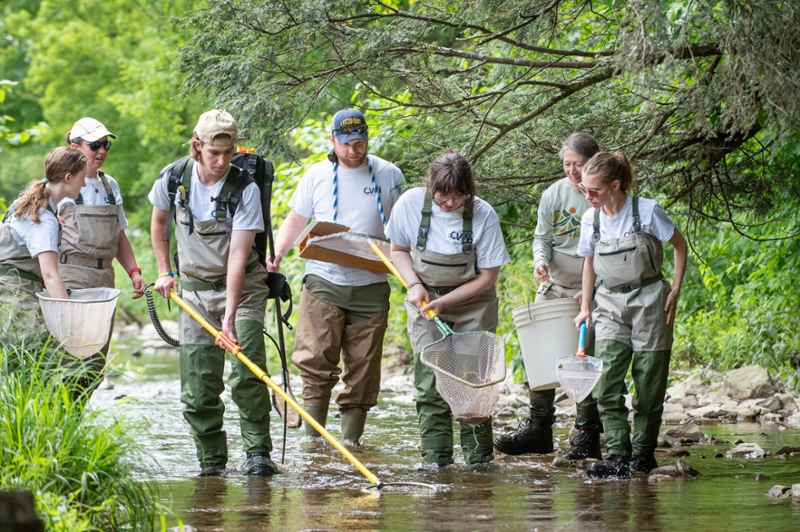
Download Image: Web
Building on the strength of the Clean Water Institute and an already robust biology program, Lycoming College will expand its offerings with the launch of a major in environmental science in time for fall 2024. The new major is expected to attract students interested in the rapidly growing green jobs sector, making Lycoming a more competitive choice among its peers.
As a new interdisciplinary course of study, Lycoming’s environmental science major integrates elements of anthropology, biology, business, chemistry, economics, English, history, philosophy and political science, to understand and address challenges to creating and sustaining a healthy environment. The program embraces the work of environmental science through experience, prioritizing internships and research experiences to prepare students for their chosen paths, from monitoring pollution or assisting in restoration and remediation projects, to advocating for environmentally-sound policies, and working to reduce the negative impact that human activities may have on the environment.
“Concerns about the environment are constantly increasing, and we need more scientists to address the issues of environmental preservation and management in light of the climate crisis at our doorstep.”
“Concerns about the environment are constantly increasing, and we need more scientists to address the issues of environmental preservation and management in light of the climate crisis at our doorstep,” said Jeff Newman, Ph.D., professor of biology and coordinator of the environmental science program at Lycoming College. “Lycoming College is dedicated to educating the world’s next generation of environmental science leaders.”
Beginning freshman year, environmental science students at Lycoming are given the opportunity to work with faculty in the lab and in the field on research projects that provide valuable experiences using cutting-edge scientific instrumentation and methodology. The interdisciplinary nature of the environmental science major gives students a broad perspective on the field. Students also have the option to pursue either a bachelor of arts degree or a bachelor of science degree, depending on the number of math or natural science courses taken.
Lycoming College’s biology program offers students abundant resources to enhance their learning, such as cutting-edge laboratory instrumentation and technology, as well as resources outside of the classroom, including the Lycoming Biology Field Station, the Waterdale Environmental Education Center, and the Montour Preserve Vernal School.
“Lycoming continuously reevaluates professional areas of interest for the college-bound population, and we are confident that the addition of an environmental science major will tick a lot of boxes for high school seniors looking for their best-fit college,” said Sandra Kingery, Ph.D., interim provost and dean of the faculty at Lycoming College. “The new major will open a lot of career avenues for students interested in the field.”
Lycoming has offered a minor in environmental science for years and will continue to do so.